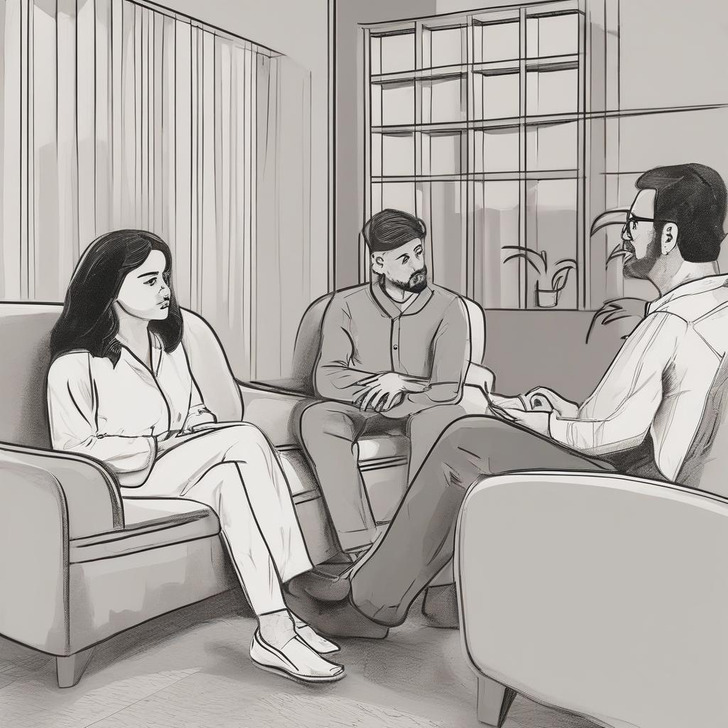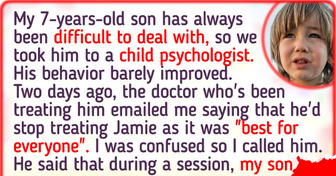His logic is so messed up. Where did he think your family would live? How did he think the financial loss would impact you and him?
I wonder if his mother got in his ear and tried to engineer this domestic takeover.
I Paid the Mortgage for 20 Years, Only to Find Out My Husband Gave Our Home to His Mother


Nikki, first off, our heart goes out to you. It sounds like you’re navigating some extremely difficult territory with your husband and his mother. Kicking him out must have been a tough decision, especially after such a long marriage, but we can’t blame you for being furious. Making such a significant financial decision without consulting you shows a blatant disregard for your partnership and undermines the foundation of trust in your relationship.
Your anger over your husband is completely understandable.

I would never trust a spouse who pulled that on me. Nor would I trust his mother. She had to know it was wrong too.
Your fury over your husband’s unilateral decision to transfer the deed of your jointly owned home to his mother without your knowledge or consent is entirely justified. This was an immense financial decision with far-reaching implications for your shared future, and it should have involved open communication, mutual understanding, and agreement between both parties. By disregarding your substantial contributions over two decades and failing to consult you, your husband displayed a concerning lack of respect for the principles of partnership, transparency, and collaborative decision-making that are essential pillars of a healthy marriage.
While your anger is justified, consider his actions might be due to misplaced filial duty.
However, it is crucial to consider that your husband’s actions may have stemmed from a misguided sense of filial responsibility rather than outright malice or disregard for your wellbeing. The notion of providing for aging parents is deeply ingrained in many cultural traditions, and it is possible that your husband’s decision, however flawed and damaging, was motivated by a desire to secure his mother’s future care and living situation. This does not excuse his behavior, but it may provide some context for his thought process and underlying motivations.
Nonetheless, the potential legal ramifications of his actions cannot be ignored.
Your attorney has highlighted the potential violation of marital rights in the deed transfer of your primary residence without your knowledge or consent. This act may constitute marital fraud, which could render the transfer null and void. It is crucial to seek skilled legal representation to thoroughly investigate all available avenues for protecting your rights, financial interests, and long-term stability.
In cases like this, understanding your legal options and remedies is paramount to ensure a just and equitable outcome. Furthermore, it is essential to keep in mind that addressing this matter promptly may help minimize further adverse effects on your financial situation and personal well-being.
Taking space, while fueled by hurt, is a natural response to such a betrayal.

Regarding your decision to temporarily remove your husband from the home, while it may have been an emotional reaction born out of shock and betrayal, it was also a reasonable and justifiable response to his profound breach of trust. Your home represents not only a significant financial investment but also a sanctuary for your family — a place of safety, security, and belonging. Your husband’s unilateral actions threatened the stability of that sanctuary, and your decision to create physical distance, albeit temporarily, is understandable given the magnitude of his transgression.
Open, honest, and empathetic communication will be crucial for addressing the root causes of this conflict and determining the viability of reconciliation.

If there is a genuine desire to rebuild trust and preserve your marriage, both parties must be willing to listen deeply, acknowledge their respective roles in the conflict, and work collaboratively towards a mutually agreeable resolution. This process may involve seeking professional counseling or mediation to navigate the complex emotional, legal, and financial terrain with the guidance of impartial experts.
Ultimately, the decision to forgive your husband’s actions, pursue alternative paths such as separation or divorce, or chart a new course altogether rests solely with you. There is no universal right or wrong answer, as every relationship is unique, and only you can determine the path that aligns with your values, emotional well-being, and long-term aspirations for yourself and your children.
We encourage you to prioritize your mental health and emotional well-being during this turbulent time.

While the path ahead may seem uncertain, know that there is strength and resilience within you that will guide you towards a solution. During this period of emotional upheaval, lean on the support of friends and family, and do not hesitate to explore your legal options, if needed. Most importantly, be open to the possibilities that lie ahead—whether that means finding a way to heal within the framework of your marriage or charting a new path forward on your own.
Check our next article, where we delve into 16 jaw-dropping houses that defy belief — architectural marvels that will have you questioning everything you thought you knew about homeownership!
Comments
I'd have John move in with his mom. Ask him for marriage counseling. And as a part of working things out sign over his portion of the house to you. I think he's secretly has a problem with the fact that you make more money than him. But since you can't trust him the deed should be in your name.
Related Reads
My Adult Stepdaughter and Her Kids Turned Our Home Upside Down, I Left and Refuse to Return Until They Are There

“Don’t Be So Dramatic!” A Woman Was Asked by Her Husband’s Family to Serve Them at Christmas Dinner

My Mother-In-Law Is Extremely Possessive About My Husband, Things Have Become Unhealthy

My DIL Severely Offended Me, She Regretted It When I Opened Up About Who I Really Am

24 Stories That Prove Family Bonds Are Like No Other

A Father Banned His Daughter From His Wedding, but She Was Not the One to Take It Easy

14 Strangers Who Did Something That Can’t Be Forgotten

12 Ironic Comics About Everyday Problems All Girls Face

My Child Scared His Therapist, and What the Doctor Discovered Was Truly Shocking

I Refuse to Let My Boss Control My Breastfeeding Breaks at Work

12 Times Kindness Won Without Making a Sound

16 Moments That Inspire Us to Stay Kind, Even If the World Feels Impossible



